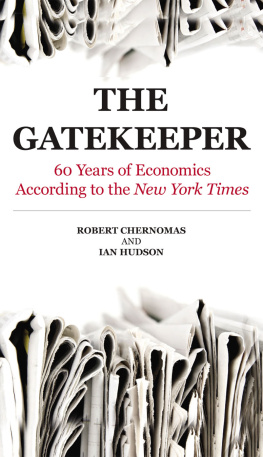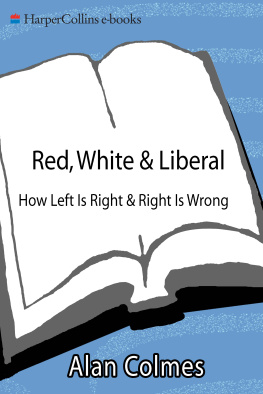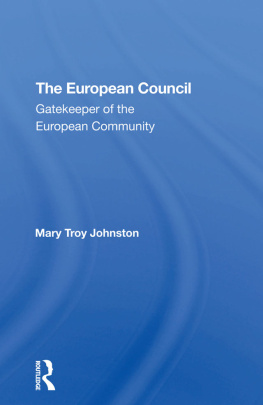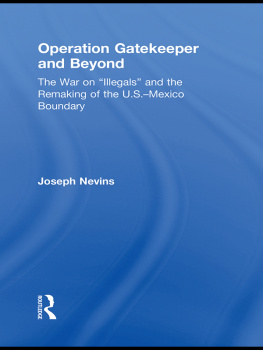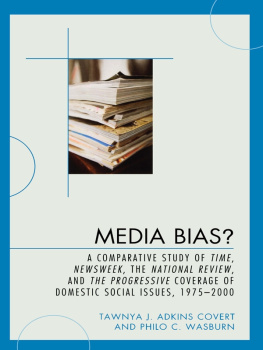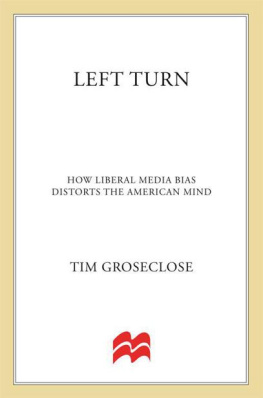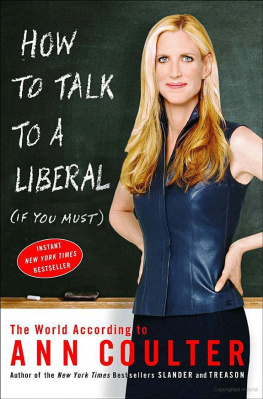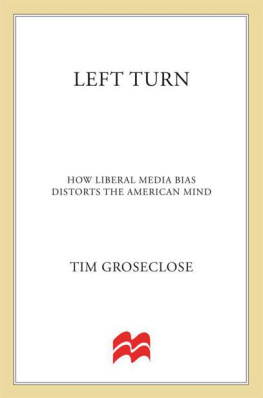First published 2012 by Paradigm Publishers
Published 2016 by Routledge
2 Park Square, Milton Park, Abingdon, Oxon OX14 4RN
711 Third Avenue, New York, NY 10017, USA
Routledge is an imprint of the Taylor & Francis Group, an informa business
Copyright 2012, Taylor & Francis.
All rights reserved. No part of this book may be reprinted or reproduced or utilised in any form or by any electronic, mechanical, or other means, now known or hereafter invented, including photocopying and recording, or in any information storage or retrieval system, without permission in writing from the publishers.
Notice:
Product or corporate names may be trademarks or registered trademarks, and are used only for identification and explanation without intent to infringe.
Library of Congress Cataloging-in-Publication Data
Chernomas, Robert.
The gatekeeper : 60 years of economics according to the New York Times / Robert Chernomas and Ian Hudson.
p. cm.
Includes bibliographical references and index.
ISBN: 978-1-59451-682-5
ISBN 978-1-59451-683-2 (pbk : alk. paper)
1. New York Times. 2. JournalismObjectivityUnited States. 3. Journalism, CommercialUnited States. 4. Government and the pressUnited StatesHistory20th century. 5. United StatesEconomic conditions19456. United StatesEconomic policy19457. United StatesForeign economic relations. I. Hudson, Ian, 1967- II. Title.
PN4899.N42N3744 2010
070.44965dc22
2010038122
Designed by Straight Creek Bookmakers.
Typeset by Jeska Horgan-Kobelski.
ISBN 13: 978-1-59451-682-5(hbk)
ISBN 13: 978-1-59451-683-2(pbk)
Growing up in a suburb of New York City, reading the Sunday Times was a ritual. Given its book-length size, the process would begin on Sunday morning but not end until much later in the week, just in time to begin again. Given its cosmopolitan character, finishing the Times made you feel up to speed on all things political and cultural. However, even at a young age, purchasing the Times provided a sense that you were being sold something akin to the high-end products advertised among the densely packed erudite news, business, sports, and cultural articles. While the black newsprint left on your fingertips at the end of each reading washed off, in a Name of the Rose sort of way, there was a sense that a residue of elegantly worded ideological perspective had slipped through into your bloodstream.
We read Newsday during the week, which had a more plebian tone than the patrician Times, but there didnt seem to be much of a difference in perspective, just a more provincial focus. Years later, Edward Herman and Noam Chomskys Manufacturing Consent gave substance to this feeling of unease by articulating a model for the idea that news was not necessarily fact and that the economic structure of the media influenced its content. However, its focus on foreign affairs was not completely satisfactory for a budding economist and it didnt account for the Times regular attacks on some corporations and some seemingly pro-business policies. More recently, this uncertainty has been reflected in an ongoing debate about the landscape of journalism in the United States. On one side, Robert McChesneys analysis of the evolving ownership structure of the U.S. media strengthened many of Chomskys arguments about the dangers of pro-corporate bias in a concentrated, privately owned industry. On the other, a new group of economists, armed with the econometric tools of content analysis, claim to have found proof that the media, as a whole, and the Times, in particular, were liberal and out of step with the economic opinions of most Americans. Could these things be reconciled?
While attending a conference in Washington, D.C., on the relationship between corporate food production, society, and the environment, populated mostly by progressive academics, we were struck by the response of the participants to a Times editor on a panel. The consensus view of those in line to comment on her presentation was that she (and the Times) was on the side of the angels. The line was too long for our intervention to be heard, but the trust these scholars placed in the Times left us with a growing sense of curiosity about what role this clearly important institution played in American democracy. When we returned to work, this project was launched.
With the staggering collapse of 2008, brought about by the very economic policies that were supposedly creating U.S. economic success, there has been reconsideration of what exactly sound economic policy might look like. While we would argue that this reconsideration has been remarkably limited in its scope, there is no question that there is a new suspicion about allowing the private sector to dictate the economic policy agenda. At this remarkable American historical conjuncture, the Times role in the return to sanity movement that encourages some government oversight of corporate behavior will reinforce its identity with liberal democratic interests. This book argues that at no time should we forget the limits to the Times commitment to a real, progressive alternative to an American corporate powered world.
In the lengthy period between the idea for this book and its rolling off the printing press, we received a great deal of help and encouragement from a number of sources. Our editor, Jennifer Knerr, with irresistible wisdom, kept suggesting additions as history-changing eventsthe financial crisis of 2008 and the election of President Obamaunfolded. The result was that another thousand articles needed to be scanned, read, and analyzed. Self-interest made us wish the world would settle down just long enough to finish the book. Jessica Priest and Mary Kay Kozyra always responded to our queries with what seemed like instantaneous precision, nurturing our sense of Paradigms professionalism and caring.
We also received a great deal of encouragement and aid from friends and coworkers. Every time that we mentioned this project, people claimed that they couldnt wait to read it. Clearly it was not only the two of us who were curious about just what type of information was making its way from the pages of the Times into the bloodstream of society. Anne-Emanuelle Birns reading of an early version of our chapter prospectus reinforced our intuition that this was a worthwhile research project, and she suggested some changes of emphasis. We also need to thank our colleague in the economics department, Fletcher Baragar, who helped focus our discussion on the economics of the Times and acted as sage arbitrator on those rare occasions when we had irreconcilable differences. Chomsky and McChesney provided encouraging words at an early stage of the project, although Chomsky warned that we should expect to be ignored by the mainstream media no matter how well documented and reasoned our book. The anonymous academics who reviewed our manuscript provided valuable feedback on how to improve the book, generally, and on how to make it more interesting to those in media studies, in particular.

